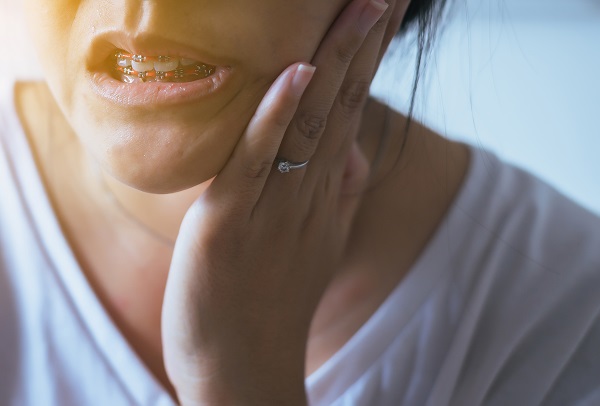How Does a General Dentist Treat TMJ?

TMJ disorder affects the joints on either side of the head, both of which connect to the jaw. When there is any sort of dysfunction, the result is a disorder, which is often diagnosed, treated and managed by a general dentist. Understanding the cause of the TMJ disorder helps the dentist determine the appropriate course of treatment.
Visiting a general dentist for TMJ disorder
General dentists are dental professionals who have been properly trained in how the jaw functions, which makes them experts at addressing TMJ disorders. General dentists can offer their patients who are suffering from TMJ pain a few different treatment options in order to ease their suffering. Since every patient is different, consultation appointments are necessary.
According to the American Dental Association, diagnosis is an important step before treatment, which includes a dental examination of checking the joints and muscles for tenderness, clicking, popping or difficulty moving.
Options a dentist can offer for treating TMJ
Below is a list of some of the more common treatment options that general dentists offer their dental patients who have been diagnosed with TMJ.
Ensure the teeth are functioning correctly
Teeth move for a variety of reasons including aging, dental work breathing or eating habits, and can even move from clenching and grinding. For patients with TMD, it is very important to look at the bite and how it is functioning in everyday use. Often there's a conservative way to make it function more efficiently, which can also alleviate a lot of TMD symptoms. This includes making minor adjustments to the teeth to make them more even. This is a very conservative procedure done by Dr. Hannah and requires no anesthetic!
Oral appliance therapy
TMJ patients who clench or grind their teeth will often benefit from wearing a custom-made nightguard. Nightguards are beneficial in that they help prevent someone from clenching or grinding their teeth when sleeping, as this is known to make TMJ worse. They are also designed to realign one’s jaw while they are sleeping, which helps take any tension off of the jaw joints. For patients who need more than night treatment, dental splints are an option, which are worn during the day.
Prescription medications
Some TMJ patients will benefit by taking a medication that is prescribed by a general dentist. The overall goal of these dental medications is to help patients relax enough so that they are not placing any stress in or around their jaw area. Examples of the types of medications general dentists may offer include muscle relaxants, anti-anxiety drugs, anti-inflammatory medications and analgesics. For patients who are experiencing extreme TMJ pain, temporary prescription pain relievers may be an option.
Performing certain exercises, relaxation techniques
There are certain exercises a general dentist can recommend for their patients in order to strengthen their jaw muscles. The purpose of these exercises is to stretch the entire mouth area, which in turn helps to make the jaw area stronger. Once the jaw is made stronger, patients may experience less or even no pain.
Those suffering from TMJ may also benefit from learning a few relaxation techniques. The purpose of relaxing the jaw area is to reduce the amount of stress in the jaw, which in turn helps to reduce the amount of pain being experienced.
Find out more about TMJ treatment
Have any questions about TMJ? There is typically not just one treatment that reduces and eliminates TMJ pain, which is why a consultation is necessary. Reach out today to find out more or to get started with an appointment.
Are you considering TMJ treatment in the Albany area? Get more information at https://www.westalbanydental.com.
Check out what others are saying about our services on Yelp: TMJ in Albany, OR.
Related Posts
Temporomandibular joint and muscle disorders, also commonly referred to as TMJ, are a group of conditions that cause pain as well as dysfunction in the jaw joint and the muscles that control the movement of the jaw. Although it is not fully known how many people have TMJ disorders, it is estimated that millions of…
You may not think much about TMJ disorder unless a dentist diagnoses you with it. This is a serious condition that can cause much pain and discomfort. Untreated, this disorder can make it difficult to chew and even speak. Instead of suffering and being in agony, you can speak to your dentist. Fortunately, relief is…
If you have recently been diagnosed with TMJ disorder, a dentist might recommend getting a bite guard to ease the symptoms. TMJ disorder causes symptoms such as earaches, headaches and facial pain. Since the symptoms worsen gradually and appear unrelated, the condition can go undiagnosed and untreated, and it affects a patient's quality of life.Several…
Are you looking into broken tooth restoration options? When someone breaks one of their teeth, treatment depends on the severity of the break. General dentists recommend early treatment for the highest chance of a successful restoration. Teeth can break for several reasons, and understanding the cause can help dictate the restoration. For example, individuals that play…
